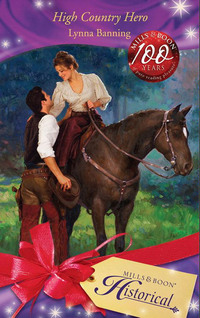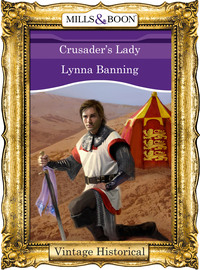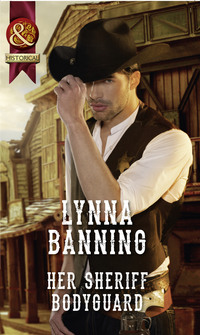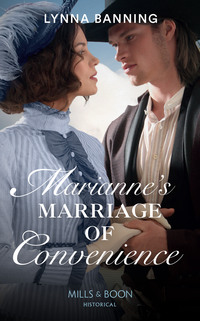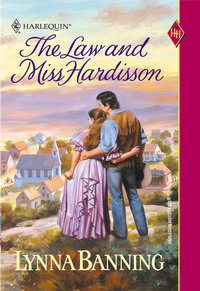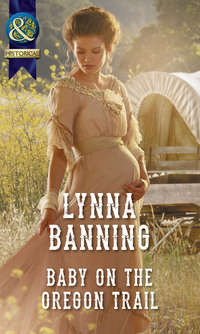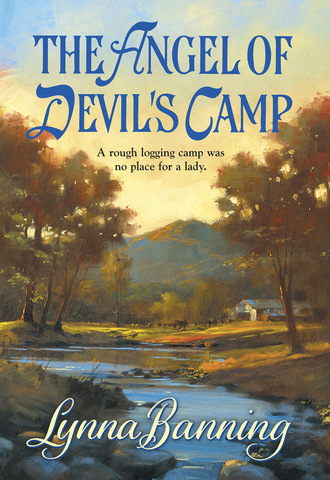
Полная версия
The Angel Of Devil's Camp
When the main room emptied, Fong shot forward, and Meggy laid her fork aside.
Here was her chance.
Very quietly she pushed back her chair, stood up and glided to the pantry. Inside, barrels of flour, sugar, salt and molasses lined one wall. Woven baskets stuffed with carrots, potatoes, apples and squash teetered on crude plank shelves, and bunches of drying herbs tied together with string hung upside down from nails in the ceiling.
She withdrew the tea towel from her pocket, lifted the first barrel lid and scooped up three handfuls of flour. She dumped it in the center of the towel, gathered up the four corners and then moved to the barrel marked Salt. She sprinkled a pinch on top of the flour, then searched for a container of saleratus. There, on the middle shelf!
She maneuvered the top off the square tin canister, dipped in her thumb and forefinger and added the white powder to the contents of the tea towel.
In the cooler sat a ceramic crock of pale cream-colored butter. Meggy hesitated a long moment. Did she dare? Papa would spin in his grave if he knew I was stealing butter from a cookhouse pantry.
She dug her fingers into the crock, scooped out a slippery handful. I cannot believe I am doing this!
She slid the glob of butter in on top of the flour and wiped her fingers on the towel. “Now,” she breathed. “What else will I need?”
Her gaze fell on a bushel basket of mottled gold apples by the door. Four went into the tea towel; the fifth and sixth she stuffed into her skirt pocket. Sweeping past the sugar barrel, she hesitated for a split second, then halted and plunged in her clean hand. Her fist closed around coarse brown lumps.
Fong’s voice rose from the kitchen like a trumpet call. “Missy help wash dishes?”
Her heart stopped. “Yes, I will,” she called out. She dumped the sugar into her pocket, then jiggled up and down so the lumps would sift down around the apples and collect at the bottom. Satisfied, she dusted off her hands and straightened her skirt.
Stepping out of the pantry, she slipped the bulging tea towel under her knitted black shawl and turned to the pile of pots and pans in the sink. Fong’s black eyes followed her every motion.
Trust me, she begged silently. I will pay you back.
He turned away without a word and dropped an armload of plates into the wide sink. “Fong wash, missy dry.”
He lifted a whistling teakettle off the stove. Steam arose as he emptied the kettle, then pumped cold water into the enamelware dishpan and pointed to a clumsily hemmed flour sack. Meggy snatched it up and stood ready.
The man was a wonder. Plates, mugs, pots and lids flew through the soapy wash water and into the rinse bucket. She wiped as fast as she could but could not keep up with him. Last to be cleaned were four black iron skillets in various sizes. Fong wiped out the grease with a wadded towel and hung them upside down near the stove.
Meggy eyed the smallest pan. Just perfect. But how would she get it out the door? Perhaps some conversation to distract Fong just long enough?
“How long have you worked for Colonel Randall?”
“Long time, missy. Since before war. Before that, on railroad crew. Boss find me and I cook in army, now here at Devil Camp.”
He sent her an inquisitive glance. “Ladies not allowed in camp. Why Colonel Tom let you stay?”
Meggy blinked. “Why, I don’t know, really. I guess he couldn’t very well turn me away, since Mr. Peabody willed me his cabin.”
Fong grunted and splashed the last plate into the rinse water. “Make no difference. Boss not like pretty women. Remind him of young sister.”
His sister! Not a wife or a fiancée? “Colonel Randall is not married, then?” How rude of me. First I turn thief, then inquisitor.
“No woman. Not since sister die.”
“Die! Oh, dear Lord, how did she die?”
Fong scrubbed hard at a tin saucepan. “Soldiers in Richmond hang her.”
Her hands stilled. “Hanged her! How dreadful! Whatever did she do?”
“They say she Yankee spy.”
The plate she was drying clattered to the plank floor. Colonel Randall’s sister had spied for the Yankees? Meggy couldn’t believe her ears. Of course there had been spies; she knew that. But hanging a woman? Why, it was unthinkable!
“So,” she murmured, “that is why he is so unfriendly. Perhaps I remind him of the sister he lost.” Oh, no, it was more than that. The Confederates had hanged the colonel’s sister…and she was a Confederate!
Fong’s face wrinkled into a frown. “You Johnny Reb, missy?”
“Y-yes. From South Carolina.”
The Oriental nodded and plopped another pot into the wash water. “Luck is bad,” he muttered. “Two things Colonel Tom not like—pretty woman and Johnny Reb. Luck very bad.”
Meggy gulped. And here she was, stealing from the colonel’s food supplies. If he found out, he would hang her!
“You go home now, missy. Fong sit up, guard tomatoes from hungry deer.” He brandished a sawed-off broom handle.
As soon as she dried the last pot and suspended it on the rack above the stove, she clutched the tea towel containing the flour mixture and pressed the smallest of the iron skillets into the folds of her skirt. Keeping her back to the cook, she slipped out the screen door and fled down the porch steps.
Behind her she heard the click of the door latch and Fong’s tuneless whistling. The latter blended with the throaty croak of frogs and the scrape of crickets. She stumbled up the path in the dark, felt her way to her own front porch and yanked open the door.
The cabin interior was black as the inside of a chimney. She crept to the bed, found the tin of candles and lit a short, fat one that Charlotte had scented with rose petals. Meggy set it on the counter. The little puddle of light calmed her nerves.
One hour. She needed just one hour.
She dampened her under-petticoat in the water bucket and scrubbed the plank counter. Then, with shaking hands, she poured the contents of the tea towel into the skillet and dug her fingers into the center. Within a few moments the flour and butter mixture was crumbly.
Dumping the lump of dough onto the clean counter surface, she patted it into shape and rolled it between her hands to make a smooth, round ball. When she’d set it on the sill of the open window to chill overnight, she emptied her pocket of the apples and spilled the sugar into the lid of a hand cream container. Then she stripped off her dress and petticoat, sponged her hands and face, puffed out the candle and fell into the bed still wearing her shimmy.
Tom tramped off the cookhouse porch and down the well-beaten path to his tent. He’d left the quart of whiskey in Fong’s care, knowing his cook would guard it as zealously as the tomato patch he’d planted at the start of the season. He’d bet Fong would sit up in his garden all night, the whiskey bottle tucked beneath his tunic.
He chuckled. The deer that gobbled Fong’s tomatoes would be far bolder than a man hankering to sneak a shot of rye!
He snatched up his account book, thumbed the pages, then slapped it down on the desk again. Damn, he wished he had some of that turkey sauce now!
He whittled the tip of his goose quill pen, fiddled with the bottle of brown ink. Finally he rose and took four steps to the front of the tent, four steps back to his makeshift desk, then repeated the circuit.
He felt another sleepless night coming on. In fact, he was so out of sorts he should probably be guarding the tomatoes and let Fong get some shut-eye. Peabody’s death had stirred up old memories.
Every single time he got riled up over something he lay awake thinking about Susanna and the ill-informed junior officers with the oh-so-gentlemanly manners who had executed her. Tom had gotten there too late to save her; instead, he’d had to bury her. He’d spent the last seven years trying to forget his failure.
His belly tightened into a hard knot. Just the sound of a soft Southern drawl set his teeth on edge. Lucky thing Peabody hadn’t talked much like a Confederate boy; otherwise, he’d never have been able to stomach the man. But Walt Peabody had spent more years in Oregon than he had in the South and talked pretty Western before the war even started.
Walt’s widow, or fiancée, or whatever she was, was another matter. Mary Margaret Hampton was a Southern belle from her toes to her crown, and he’d hated her guts the minute she opened her mouth. A woman exactly like her had accused Susanna and, worse, had testified against her in court.
Tom flopped onto his cot, shucked off his boots and trousers, and stretched out full length with his head resting on his folded arms. He spent too many nights like this, staring at the canvas tent ceiling or out into the dark. He was wasting his life.
A light glowed on the rise beyond the cookhouse. He squinted his eyes. The cabin. Must be a lantern or a candle burning inside; the flame shone through the chinks in the split-log walls.
He watched the light wink on and off as something—likely Miss Hampton—moved back and forth in front of the source. What was she doing, pacing up and down like that? That’s what he usually did at night. It was damned unsettling to lie here and watch someone else do it. He felt like he was watching himself.
The light flickered out, reappeared. It reminded him of the signals the Cheyenne made with hand-held mirrors. He stared at it, trying to clear his mind of Miss Mary Margaret Hampton, until his eyelids drifted shut.
Meggy woke with a start. What was that?
Something rustled in the brush outside the cabin. She raised her head, listening. A shaft of moonlight fell through the open window above the sink, silhouetting the ball of dough on the sill and the six lumps that were her stolen apples.
The rustling came again, closer this time. Without a sound, she sat up and swung her feet to the floor. Pulling her father’s revolver from under the heap of garments where she’d hidden it, she hefted it in both hands, crept to the window and peered out.
A huge, soft brown eye peered back at her. A sleek brown head ducked, then lifted again. A wide rack of antlers gleamed in the pale light.
A deer! Probably the one that foraged in Fong’s tomatoes. The animal took a tentative step forward, stopped, then sniffed the air.
Oh, no! Not my piecrust!
“Shoo!” she cried. Her voice came out no louder than a whisper. “Go away, please!”
The stag took two more steps. Meggy raised the revolver, closed her eyes and squeezed the trigger.
The shot brought Tom out of bed so fast he smacked his head on the tent pole. Great jumping catfish, what in the—
A woman screamed.
He yanked on his pants, jammed his feet into his boots and began to run. In the dark he could barely see the trail. Keeping low to the ground, he headed in the general direction of the noise.
Moonlight, he thought as he stumbled past the cookhouse, was one of God’s greatest ideas!
Chapter Four
All the way up the hill, Tom could hear the sound of a woman crying. It cut into his belly like a shot of rotgut whiskey and made him blind with rage. He didn’t know why, but he’d never been able to stomach a woman’s tears.
When he could see the dark outline of the cabin in the moonlight, he slowed to a walk. If she could cry, she could breathe. That answered one question.
The other question—Why?—he answered when he stumbled over the carcass of a deer.
Someone had killed tomorrow’s supper. The shot must have scared the ginger out of her, but the thought of venison steaks made him smile. He stepped around the dead animal and headed for the glimmer of white on the porch ahead of him.
“Miss Hampton? It’s Tom Randall.”
When he stepped forward, she jerked upright. “Oh! Please come no farther, C-Colonel Randall. I am not p-properly attired.” She sounded like she had the hiccups.
Tom spun on one heel so his back was to her. “Who shot the deer?”
“I—I did,” she confessed between sobs. “At least I think I did. I had my eyes closed.”
Tom knelt to inspect the animal. “Mighty good shot, ma’am. Clean and true, right into the head.”
“Oh, the poor, dear thing. I meant only to scare it away, not kill it!”
Poor dear thing? He sneaked a look at her. Arms locked about her white-shrouded legs, she rocked back and forth, her forehead pressed against her knees.
“I feel just awful about shooting it. It had such big, soft eyes.”
Two things warred for Tom’s attention—the revolver lying beside her and her hair tumbling loose about her shoulders. He struggled to keep his mind on the gun.
“Where’d you learn to shoot?”
She choked back a sob. “My father taught me, before he went off to his military post. He said I had a g-good eye.”
“And a steady hand, it would appear. Miss Hampton, you might as well dry your tears and make the best of it. The boys’ll be grateful to you for supplying some good meat.”
“I—I will try.” She gazed at him with a stricken look. “I just feel so…mean!”
He stuffed down a chuckle. “You ever shoot anything before?”
She nodded. “I shot a Yankee once. In the backyard of the parsonage. He was after our last two chickens, you see, and I…I hit him in the shoulder. I offered to dress the wound, but he swore something dreadful and skedaddled over the back fence.”
So she’d lived in a parsonage, had she? A preacher’s daughter with good eyesight and guts. Now, why should that surprise him? All Southerners were murdering bastards hiding under a cloak of gentility. He’d learned that in Richmond. His jaw tightened.
“I hear somebody coming, Miss Hampton. You might want to put on a robe.”
Meggy scrambled to her feet. The colonel stood before her, both hands jammed in his trouser pockets. Mercy me, he wore no shirt!
She stared at the bare skin of his chest, at the muscles cording his broad shoulders. Never in her whole life had she seen a man without his shirt, not even Papa. She gulped. Even her intended, Mr. Peabody, had been laid out in his coffin fully dressed.
An odd, restless feeling crept over her as she gazed at the colonel’s tall frame. Why, he looked strong enough to—
Sergeant O’Malley crashed out of the trees and into the clearing. “For the love of God, Tom, what’s goin’ on? I heard a shot, and when I found your tent empty…well, I thought maybe you’d—What’s this, now?”
The Irishman stared down at the dead stag. “Well, I’ll be smithereened! You killed us a deer, Tom.”
“I didn’t exactly…”
Meggy slipped inside the front door and listened to Tom’s voice floating from the porch. “Think we can dress it out here?”
“Nah. Too dark. Let’s lug it down to the cookhouse. I’ll go rustle up Fong and some other help. Maybe those two rascally Claymore lads you took on.”
She held her breath. Tom had sidestepped telling Mr. O’Malley who had killed the animal. True, she didn’t want to confess the deed, but she doubted the colonel would understand why. No Yankee soldier could fathom Southern sensibilities.
She tiptoed to the counter and rummaged in the pile of garments for her night robe, drew it on over her shimmy and underdrawers and tied it about her waist with a jerk.
No Federal officer she’d ever encountered paid the slightest attention to the feelings of civilians. When the Northern army overran Chester County, the soldiers had swaggered and shouted and stolen her mother’s ruby ear-bobs. Why, they did not even look like gentlemen. Even the men she and her sisters had tended in hospital were hopelessly ill-mannered and unlettered.
Through the open doorway she watched the two men drag the deer away from her porch. Then Mr. O’Malley tramped off down the hill toward the cookhouse and the colonel settled himself on the planks, his back toward her.
A long minute dragged by. Meggy became acutely aware of the noises around her, the breeze sighing through the treetops, the low hoo…hoo of an owl. The uneven breathing of the man sitting not three feet away from her.
What was he thinking?
The silence hung on until she thought she would scream. All of a sudden his low voice made her jump.
“Might as well go on back to bed, Miss Hampton. We’ll haul the carcass down to the cookhouse so you won’t have to look at it in the morning.”
“Thank you,” she managed, in a tight voice. But she stood frozen to the spot. Why could she not move?
Because…Meggy’s entire body trembled. Was the sight of a half-naked man outside her front door so disturbing?
Certainly not! It was because she was a tiny bit afraid of him.
Because she disliked him.
Because he, well, he was a Yankee.
Because he was a man.
Her heart hammered. Most definitely not! She put no stock whatsoever in such things. She and Walter Peabody had contracted a union of souls, not bodies. She always wondered at her sisters, who had grown dreamy-eyed and absentminded when they were smitten by some young gentleman. Oh, Meggy, just the sound of his voice gives me the shivers!
She had no time for such sentimental nonsense.
Besides that, she most certainly harbored no such feelings about a man she had known just half a day and was a Yankee besides.
She was tired, that was it. And overwrought. Her nerves were frazzled. This entire day—and night—was a dreadful nightmare, and any moment she would wake up.
“Go to bed,” he repeated.
“I would,” she murmured, “if I could make my feet move.”
He rose and half turned in her direction. “Are you all right?”
“No. I—I mean, yes. Of course.”
He stepped up onto the porch. “Need help?”
His movement toward her jolted her into action. She inched backward until her legs touched the cot against the far wall.
“Miss Hampton?”
Her derriere sank onto the blanket. With a supreme effort she closed her eyes to blot out the bronzed skin of his bare chest, his sinewy shoulders and arms. Mary Margaret, you are hallucinating!
Voices came up the hill. Someone—it must be Colonel Randall—stepped across the porch and pulled her front door shut.
“Tomorrow…”
She heard his words as clearly as if they were spoken at her bedside.
“Tomorrow, Mick, I want a lock put on this door.”
Oh, yes, Meggy thought with relief. A lock was exactly what she needed. A lock would surely keep her safe.
By the time Meggy woke, the sun was high overhead in a sky so blue and clear it looked like a cerulean-painted china bowl. She breathed in the warm, pine-scented air and bolted upright. Mercy, she’d overslept!
With hurried motions she washed her face and arms, pulled on her blue sateen skirt, a white waist and a plain cotton apron, and bound up her hair in a neat black net.
Cautiously she cracked open the front door. No sign of men. No sign of the deer, save for a mashed-down patch of dry grass. Skirting the area, she gathered small sticks and an apronful of pinecones, then started a fire in the wood stove. When it caught, she fed it pine chips apparently left over from construction of her cabin and small sections of a tree stump that had been chopped up and left in chunks. Then she rolled up her sleeves and set to work.
Using a smooth glass bottle of Molly More Rosewater as a rolling pin, she pressed the lump of dough into a round flat circle, laid it in the skillet she’d borrowed from the cookhouse, and crimped the edges with her thumb and forefinger. With the pocketknife she always carried in her reticule, she peeled the apples she’d taken from Fong’s pantry, sliced them into the pie shell and sprinkled her pocketful of sugar over the top. A dollop of molasses would have been nice, but she could manage without it. It was one thing to carry a tea towel full of flour and butter, but a handful of sticky syrup?
When the oven was hot, she shoved the skillet in, rinsed off her hands and busied herself gathering more wood to replenish the fire while the pie baked.
Oh, it did smell heavenly, even without the cinnamon she usually sprinkled over the apples. The sweet-tart scent made her mouth water. Papa used to say she could make a pie so tender and delicious it was like an angel’s breath melting in his mouth.
To her sister Charlotte the good Lord gave the gift of words. To Hope and Charity, keen eyesight and skill with a crochet hook. To Addie, a singing voice that could reduce a congregation to tears.
But to me, Mary Margaret, God gave the ability to cook.
When the pie was golden-brown, she wrapped her apron around her hand, slid the bubbling confection out of the oven and set the skillet on the windowsill to cool.
Unable to stop herself, she twirled about the room until she was giddy. It was a silly thing to do, but at this moment she didn’t care one bit. Her daring venture would be a success, she just knew it!
Off in the distance she heard the crash and thump of a falling tree. Somewhere in the woods beyond were twelve hungry loggers. All she needed was a bit of patience and the Lord’s own luck.
She eyed the cooling pie and smiled.
Meggy dipped her bare toe in the slow-moving river and shivered. She didn’t care what Colonel Randall said, she desperately wanted a bath and a chance to wash her clothes and her hair. Her scalp tingled at the thought of soapsuds. With the men out cutting trees, she couldn’t see the sense in advising the colonel of her plans, as he had requested. What could he possibly care about her personal habits?
Despite the bright sun beating down on it, the water was ice cold. She pulled her arms in close to her body. Rivers at home in Chester County were generally tepid by late summer. Out here in the West, everything was colder, bigger, steeper, rougher. And more frightening.
She waded in until the clear water covered her knees, then submerged the bundle of clothes she carried and tossed a bar of rose-scented soap on top of them. Standing naked in the shallows, she scrubbed her black traveling dress, two petticoats, her underdrawers, even her shimmy. Soft, warm air brushed against her skin, and she sighed with satisfaction. Her apple pie was cooling in the window, and now her laundry was done.
She wrung out the sopping garments, waded to shore and draped them over a sun-drenched chokecherry bush. By the time she’d washed her hair and dunked her hot, sticky body in the cool river water, her clothes would be dry enough to put on.
Bending at the waist, she unpinned her hair and sloshed water over the heavy chestnut waves, then worked up a lather with her fingers. Oh, how blessed it was to feel clean again! She took a deep breath, leaned forward to dive into the blue-green water, and froze.
Voices floated from the woods behind her. Men’s voices.
Good heavens, the logging crew! Meggy clapped one hand over her mouth to suppress a squeal. She plunged in neck deep just in time to see Colonel Randall stride into view at the head of a straggly line of slow-footed workers. Two loggers, the Swede and the plump, sweet-faced man called Orrin, carried a two-man crosscut saw across their shoulders.
Dear God, the colonel was heading straight for the chokecherry bush! He would see her garments and know in an instant she had disobeyed his orders. Worse, she was stuck out here in this freezing water with her hair piled up under a tower of soapsuds.
She sank into the water up to her chin, and her teeth began to chatter.
She watched him approach, saw him hesitate as the chokecherry came into his view. Her bent knees began to ache.
Suddenly the colonel quickened his pace. Meggy groaned. He had spied her dress, her petticoats, her…Oh, how perfectly mortifying!
Barely breaking stride, he gathered up the items, rolling them into a wet ball as he walked, and tucked them under one arm. Without a backward glance he kept moving, staying well ahead of the men lagging behind him.
When their voices died away, Meggy dunked her head under the surface and swam to shore. Her skin sprouted goose bumps as big as June bugs as she waded out of the river. Heaven help her, she had not one single scrap to clothe herself in except for her shoes! How was she to get back to her cabin?


